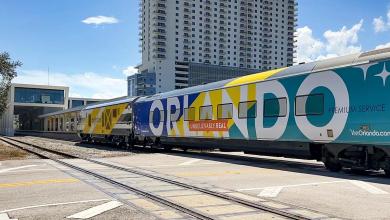By Nick Carey and Nora Eckert
LONDON/DETROIT (Reuters) – Automakers with plenty of cars on dealer lots have a time advantage as they hone their strategies for passing on President Donald Trump’s 25% tariffs, while Toyota’s lean inventories could force it to hike customer prices sooner.
Trump imposed 25% duties on imports of foreign cars last week, which analysts say could add thousands of dollars to car prices, sending buyers scurrying into dealerships to try to beat the inflation.
As of March 17, Toyota had 32.7 days supply of vehicles, according to automotive services provider Cox Automotive, well below the industry average of 89 days, and just 20.9 days supply of its popular RAV4 SUV.
Toyota said it does not plan to raise U.S. prices for now and Cox executive analyst Erin Keating said Toyota has told her it can boost production at its Kentucky plant.
“But they’ll still be vulnerable because of the sheer math,” she said.
Pre-tariff cars have become a hot commodity.
In North Haven, Connecticut, Bob Thomas Ford in suburban Hamden has a billboard proclaiming: “100 pre-tariff Fords available!”
Ford had 103.4 days of supply as of mid-March, according to Cox, while Hyundai had 107.4 days.
The race is on to get finished vehicles through U.S. ports before the duties take effect late on April 3, qualifying them as pre-tariff models and delaying price spikes in an uncertain economy.
A source at a major European carmaker, for instance, said it shipped as many high-end models as possible across the Atlantic ahead of tariffs.
The Trump administration’s 25% tariffs on some auto parts – engines, transmissions, powertrain parts and electrical components – will have a slower effect, with some analysts estimating parts imported after midnight on April 3 will end up in finished vehicles starting mid-April.
Price hikes should follow soon after.
Auto analyst Mel Yu said imported auto parts account for between 40% to 80% of U.S.-made cars and 20% to 40% of the retail price.
“No matter where they are made, car prices will go up,” he said. “The impact of the parts tariffs will be pretty quick.”
Yu has been consulting for a number of automakers in ongoing talks with U.S. dealership groups on spreading out tariff costs, which should add between 8% and 16% to the retail price a car.
Those talks should see dealers take a lower upfront profit on sales. In return, automakers will lower the sales targets at which dealers make lucrative bonuses, while also cutting interest rates and extending financing terms, translating into an increase in monthly payments for consumers of 5% to 7%, Yu said.
“Almost 97% of U.S. retail customers take either financing or a lease,” he said. “So it’s all about the monthly payment.”
But consumers will face a bigger hit with higher car insurance premiums as higher part cost make repairs expensive.
Cox’s Keating said higher monthly payments and premium hikes will force more U.S. consumers into the used car market, pushing up prices.
“GONNA HURT”
In the near term, automakers and dealers with plenty of pre-tariff cars have some breathing room.
Jim Seavitt, owner of Village Ford in Dearborn, Michigan, has 90 days of vehicle supply now to buffer the impact.
Ford imports fewer finished vehicles from Mexico and Canada than its Detroit rivals General Motors and Stellantis, so higher auto parts prices are Seavitt’s main concern.
“We’re gonna be okay short term,” he said. “If this goes on longer, it’s gonna hurt dealers.”
Most automakers refuse to comment on price increases, with the exception of luxury producers like Bentley or Ferrari that will pass on the extra costs.
Mercedes-Benz is building up U.S. inventory levels to get ahead of tariffs, executives told analysts on a call on Monday, according to notes by analysts.
Asked about pricing, executives said no carmaker operates in a silo, implying it would observe how competitors responded to tariffs, a Bernstein Research note said.
In a March report, economist Arthur Laffer wrote that manufacturers with low inventories “would need to raise prices almost immediately to maintain profitability”.
“There would be a delayed but inevitable impact for others, as manufacturers with larger inventories could temporarily delay price increases,” he added.
Toyota’s lean inventories make the question of price hikes more urgent.
The company has struggled to increase production of its popular hybrids and Koji Endo, head of equities research at SBI Securities said the automaker “may start moving to raising prices little by little from around the beginning of May”.
“They have very low inventory… not even enough for one month, so everything will sell out soon,” Endo said.
Seiji Sugiura, an analyst at Tokai Tokyo Intelligence Laboratory, said the weak yen could allow Toyota to delay price increases and take market share from U.S. rivals GM, Ford and Stellantis.
“However, we don’t know how the Trump administration would interpret this,” Sugiura said.
Beyond Toyota, individual models pose headaches for U.S. and foreign automakers alike.
Cox’s Keating said the company sees five models – the Honda CR-V, Chevy Trax, Subaru Forester, Chevy Equinox and Honda HR-V – as most impacted by tariffs, with an average of 51 days supply.
But a pre-tariff rush could see those models sell far quicker.
“If it’s a fast-selling car that now becomes in demand even more and it sells faster, then very soon that day supply gets adjusted downward,” she said.
(Reporting By Nick Carey in London, Nora Eckert and Kalea Hall in Detroit, Victoria Waldersee in Berlin, Alessandro Parodi in Gdansk and Daniel Leussink in Tokyo; editing by Barbara Lewis)


